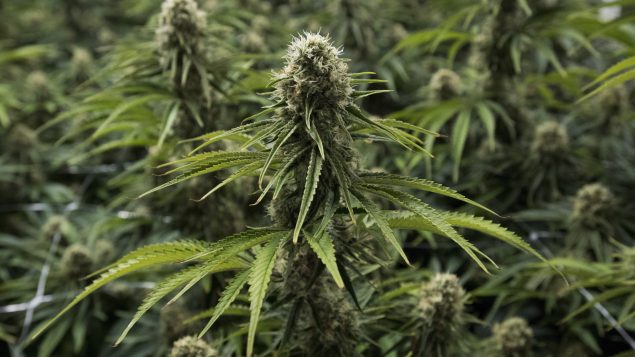The Canadian Medical Association Journal blasted Monday the plan by the Liberal government to legalize cannabis in Canada as “national, uncontrolled experiment” that pits the profits of cannabis producers and government tax revenues against the health of Canadians.
As of midnight on Oct. 17, Canada will become only the second country in the world after Uruguay to legalize recreational use of cannabis across the country.
Investment in cannabis firms has risen substantially over the past year in anticipation of legalization, with new producers popping up across the country, the CMAJ says.
“Their goal is profit, and profit comes from sales — sales of a drug that, according to Health Canada, will cause a problem in nearly one in three adult users and an addiction in close to one in 10, with higher risks in youth,” says the editorial penned by Diane Kelsall, the CMAJ’s editor-in-chief.
Long-term effects of cannabis use not well-understood
In an interview with CBC News, Kelsall said many Canadians simply don’t understand the short- and long-term effects of cannabis use.
“The government by legalizing marijuana has sent a message to Canadians that its use is acceptable,” Kelsall told CBC’s Andrew Nichols. “And as a physician and as a parent I am concerned that the youth of Canada are going to think that this is normal. They are not aware that it could dramatically affect their lives in years to come.”
(listen to CMAJ editor-in-chief Diane Kelsall explain the medical community’s concerns about cannabis legalization to Andrew Nichols of CBC News)
ListenWhile short-term effects of cannabis use are fairly well-known, doctors are concerned about longer-term effects, Kelsall said.
The federal legislation sets the minimum age to buy recreational marijuana at 18. Kelsall calls that too young given evidence suggesting that the human brain doesn’t mature until about age 25.
“We know that the younger you start using marijuana the more you put yourself at risk of future health effects,” she said. “We know about the mental health problems: if you start when you’re young, you’re at higher risk of psychotic disorders.”
Children who start using marijuana early are less likely to finish school, to hold a job or develop healthy long-term relationships, Kelsall said.
“We know that there are problems with depression, with anxiety, those are some of the ones that we know about,” Kelsall said. “We know it will have effects on the lungs in the future, we know that it’s linked to testicular cancer, we know that it’s linked to changes in the brain on MRI, we know that it’s linked to changes in the chemicals in the brain.”
Commitment to review legislation

Recreational use of dried cannabis and oils will become legal in Canada on Oct. 17, 2018. The Canadian Medical Association Journal is calling on the federal government to review the legislation in a year. (iStock)
Kelsall called on the federal government to take responsibility for the legislation by providing adequate funding for robust monitoring of cannabis use among all segments of society, especially among youth and other populations at particular risk, such as pregnant women.
“We don’t want to find out like we did with tobacco decades down the line that we made a mistake and it actually causes even more adverse effects than we suspect it does,” Kelsall told CBC News.
Research done in the 1980s is outdated, Kelsall said.
“The levels of THC in today’s cannabis are not the ones from the research that was done in the 80s,” Kelsall said. “We know that, for example, our idea of dependence in adults is one in 10 and youth, who start using, about one in six. But that’s based on 80s stats.”
Levels of THC, the chemical responsible for most of marijuana’s psychological effects, in modern strains of marijuana have increased dramatically since the 1980s, she said.
“There is so much that we need to know,” Kelsall said. “And the journal is calling on the federal government to commit to take a look, not in a decade, not in two decades, in a year. Has use increased? Has it increased among youth and if it has, then they need to do something about this legislation.”







For reasons beyond our control, and for an undetermined period of time, our comment section is now closed. However, our social networks remain open to your contributions.